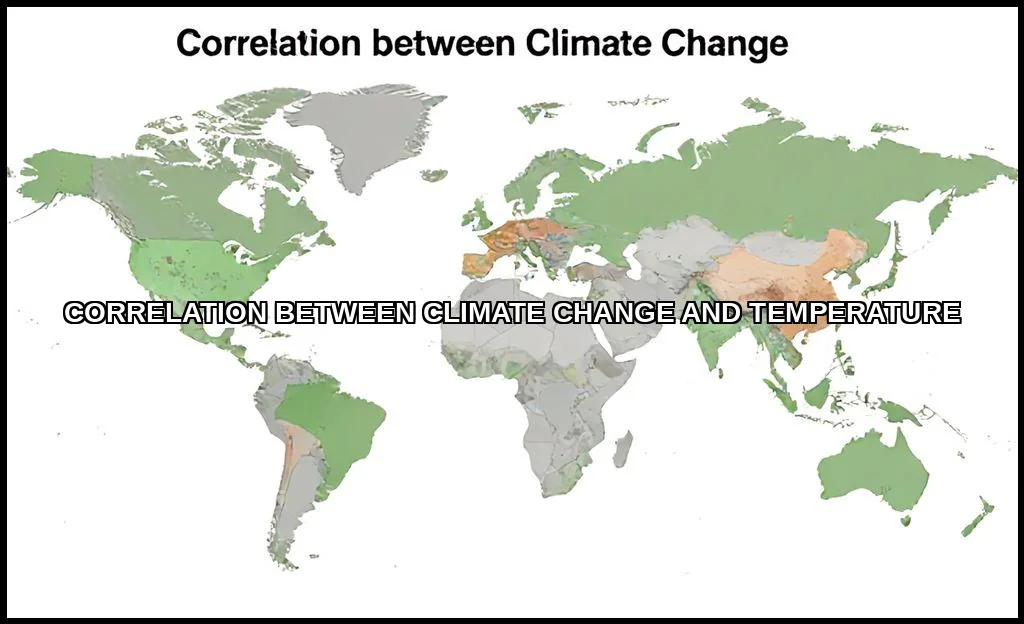The relationship between climate change and temperature isn’t just a theory. It’s the central, measurable heartbeat of a warming planet. You can think of global temperature as the primary vital sign, with climate change representing the complex diagnosis. This article breaks down the science, the data, and the undeniable link.
For those tracking environmental conditions at home, precise measurement is key. Monitoring indoor humidity alongside temperature provides a clearer picture of your local climate. For this, many homeowners find tools like the Govee Digital Hygrometer incredibly helpful for accurate, real-time readings.

The Greenhouse Effect and Temperature Forcing
At its core, the warming is driven by the greenhouse effect. It’s a natural process, but human activity has supercharged it. Greenhouse gases like carbon dioxide (CO2) and methane act like a blanket in our atmosphere. They allow sunlight in but trap heat that would otherwise escape to space.
This leads to a direct climate forcinga change in the planet’s energy balance that “forces” the climate to adjust. The primary adjustment? A rise in global average temperature. The correlation between CO2 and global temperature is stark when you look at ice core data spanning millennia. More gases mean more trapped energy. It’s physics.
How Forcing Drives Change
This forcing doesn’t just raise the thermostat a uniform degree. It disrupts systems. It intensifies heat waves, alters precipitation patterns, and fuels extreme weather. The energy has to go somewhere. Understanding this mechanism is the first step in grasping the correlation between climate change and temperature.
Analyzing Historical Temperature Data and Trends
Science relies on evidence, and the evidence here is overwhelming. Modern temperature records, compiled from stations, ships, and satellites, show a clear upward trend. But the story is deeper in paleoclimate data from ice cores and tree rings.
- Instrumental Record: The last 150 years show rapid warming, with the last decade being the hottest on record.
- Paleoclimate Proxies: These show that current warming is unprecedented in both rate and scale over millennia.
- Temperature Anomalies: Scientists use these (deviations from a long-term average) to map global temperature trends. The map is overwhelmingly red.
When you examine historical temperature data and climate change, the pattern is unmistakable. The line on the graph climbs steeply alongside industrial greenhouse gas emissions. It answers the question: how does climate change affect average temperature? Directly, and significantly.
It’s worth noting that local temperature fluctuations are normal. But the global signal rises above the noise.
Statistical Correlation vs. Causation in Climate Science
Here’s where nuance is critical. Two things can be correlated without one causing the other. In climate science, we have both a strong correlation and a proven physical mechanism. That’s the gold standard.
The correlation coefficient between atmospheric CO2 levels and global temperature over geological time is remarkably high. But we don’t rely on statistics alone. Physics provides the causal link: we know how CO2 molecules interact with infrared radiation. The lab experiments are centuries old.
Separating Signal from Noise
Climate data analysis accounts for natural variabilitysolar cycles, volcanic eruptions, ocean patterns like El Nio. When these factors are filtered out, the human-caused warming signal is dominant. This is the scientific evidence linking temperature rise to climate change. It’s a consensus built on multiple, independent lines of inquiry.
For a deep dive into the evidence, NASA maintains an excellent official source that is updated regularly.
Future Projections and Climate Models
So where are we headed? Scientists use sophisticated climate models to project future warming patterns. These are not crystal balls; they are physics-based simulations run on supercomputers. They test how the climate system responds to different greenhouse gas scenarios.
| Scenario | Projected Warming by 2100 | Key Impacts |
|---|---|---|
| Sharp Emissions Cuts | ~1.5C | Significant but manageable risks |
| Moderate Reductions | ~2.5C | Increased severe weather, water stress |
| High Emissions (Business as Usual) | >4C | Catastrophic, irreversible changes |
The models consistently show that future temperature increases are tightly linked to cumulative emissions. They project not just higher averages, but more frequent and severe extremes. The temperature and climate change link dictates our future risk portfolio.
Understanding these projections can even inform practical decisions, like knowing what safe operating temperatures are for home systems in a warmer climate.
The Path Forward
The correlation is clear. The causation is proven. Global warming, tracked through temperature anomalies and records, is the most visible symptom of a planet under pressure from human activity. This isn’t a debate about data points. It’s about the trajectory of our shared environment.
The complexity lies in the impactsthe cascading effects on ecosystems, economies, and communities. But the core relationship is simple physics. Acknowledging this link is the first, non-negotiable step toward meaningful action. The data has spoken. The question is what we do with that information.
